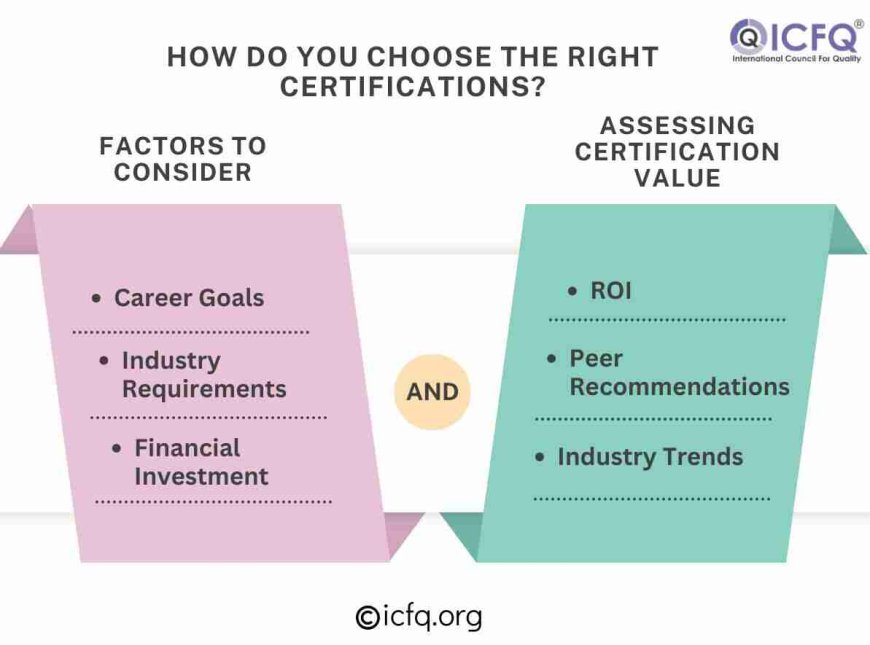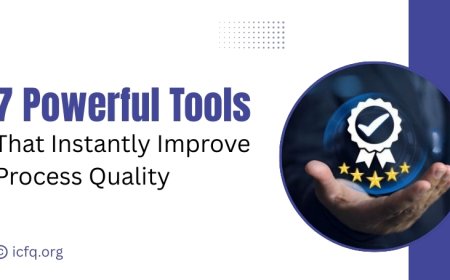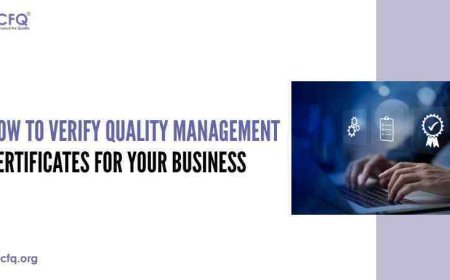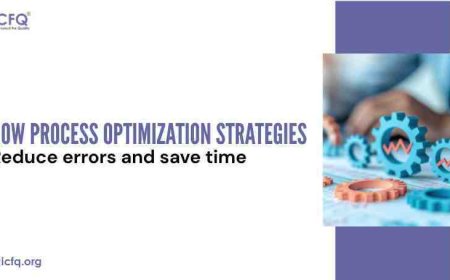Why do quality certifications matter for your career growth?
Discover the significance of quality certifications for career advancement. Learn why obtaining certifications can enhance your professional growth.

Securing employment or advancing in one's career can be challenging. With numerous qualified candidates vying for limited positions, standing out from the crowd is essential to securing opportunities. Employers seek candidates who not only possess relevant skills and experience but also demonstrate commitment to excellence and continuous improvement.
Quality certifications play a crucial role in helping individuals stand out in the job market. These certifications validate one's expertise and proficiency in specific domains, providing employers with tangible evidence of an individual's skills and qualifications. In addition to showcasing technical knowledge, quality certifications demonstrate dedication to professional development and a commitment to upholding industry standards and best practices. As a result, certified professionals often have a competitive edge over non-certified counterparts, as employers prioritize candidates who have invested in obtaining recognized credentials. In today's dynamic and competitive job market, quality certifications serve as valuable assets, helping individuals differentiate themselves and enhance their career prospects.
What are quality certifications?
Quality certifications are official approvals given to individuals or organizations that meet specific standards set by recognized certification bodies. These certifications show that products, services, or processes meet certain quality standards and follow industry best practices.
Popular certifications include ISO certifications, which show that a company's quality management systems meet international standards like ISO 9001. Another example is the Project Management Professional (PMP) certification, which proves expertise in project management principles and practices. Additionally, Six Sigma certifications, like Green Belt or Black Belt, demonstrate skills in improving processes to reduce errors and increase efficiency across different industries. Overall, quality certifications assure customers and employers that products or services meet high-quality standards, making them valuable credentials for career growth and credibility.
Benefits of Quality Certifications to Career Growth
-
Enhanced Skills and Knowledge: Certifications ensure up-to-date industry knowledge and skills through rigorous training and assessments. They cover essential concepts and practices, helping individuals stay current with industry trends and advancements.
-
Increased Marketability: Certifications can make a resume more attractive to employers by showcasing specialized expertise and dedication to professional development. They differentiate candidates from others and demonstrate a commitment to excellence, making them more likely to be considered for job opportunities.
-
Higher Earning Potential: Studies have shown that certified professionals often earn higher salaries compared to their non-certified counterparts. For example, PMP-certified project managers typically command higher salaries due to their recognized expertise and credibility in the field.
-
Professional Credibility: Certifications provide evidence of commitment and credibility in a specific field, enhancing professional reputation and earning the trust of employers, clients, and colleagues. They validate skills and knowledge, leading to increased confidence in the individual's ability to deliver high-quality work.
How do you choose the right certifications?

Factors to consider:
-
Career Goals: Consider how the certification aligns with your career aspirations and desired job roles. Choose certifications that enhance skills relevant to your career path and future growth.
-
Industry Requirements: Research industry standards and job market demands to identify certifications valued by employers in your field. Look for certifications that are widely recognized and respected within your industry.
-
Financial Investment: Assess the cost of obtaining the certification, including exam fees, study materials, and any required training courses. Consider your budget and weigh the potential return on investment (ROI) against the cost of certification.
Assessing certification value:
-
ROI: Evaluate the potential benefits of the certification, such as increased job opportunities, higher earning potential, and career advancement prospects, compared to the investment required to obtain it.
-
Peer Recommendations: Seek advice from colleagues, mentors, or industry professionals who hold the certification or have experience in the field. Their insights can provide valuable perspectives on the certification's value and relevance.
-
Industry Trends: Stay informed about emerging trends and developments in your industry to ensure the certification remains relevant and valuable over time. Research job postings and employer preferences to gauge the demand for certification in the current job market.
Implementing What You Learn
Seek opportunities to apply the concepts and techniques you have acquired in certification classes at work. Look for assignments that allow you to apply your newfound understanding, then make suggestions for how to solve them. In addition, seek guidance from seasoned colleagues and collaborate with your group to overcome obstacles. You will advance your abilities and support the success of your team by doing this.
Recall that learning never stops after obtaining a certification. Keep abreast of changes in your industry through professional development and education, including new trends and methods of operation. Additionally, to keep your abilities current and fresh, remember to update your certifications. Make sure you have enough time and are aware of when they need to be renewed.
Success and Case Studies
Quality certifications have helped many professionals advance in their careers. For example, a project manager who earned the PMP certification found themselves landing higher-paying job opportunities and gaining recognition for their expertise in leading successful projects. Similarly, an IT professional who obtained a Cisco certification saw a significant increase in job prospects and salary offers due to their enhanced technical skills and industry recognition. These success stories highlight how quality certifications can open doors to new opportunities and contribute to professional growth and success.
quality certifications play a vital role in advancing careers by validating skills and expertise, opening doors to new opportunities, and increasing earning potential. Throughout this blog, we've discussed how certifications enhance skills and knowledge, increase marketability, and boost professional credibility. By obtaining certifications, individuals can demonstrate their commitment to excellence and stand out in competitive job markets. I encourage readers to explore certifications relevant to their field and career goals, as they can make a significant difference in their professional lives by providing a pathway to success and advancement.



























